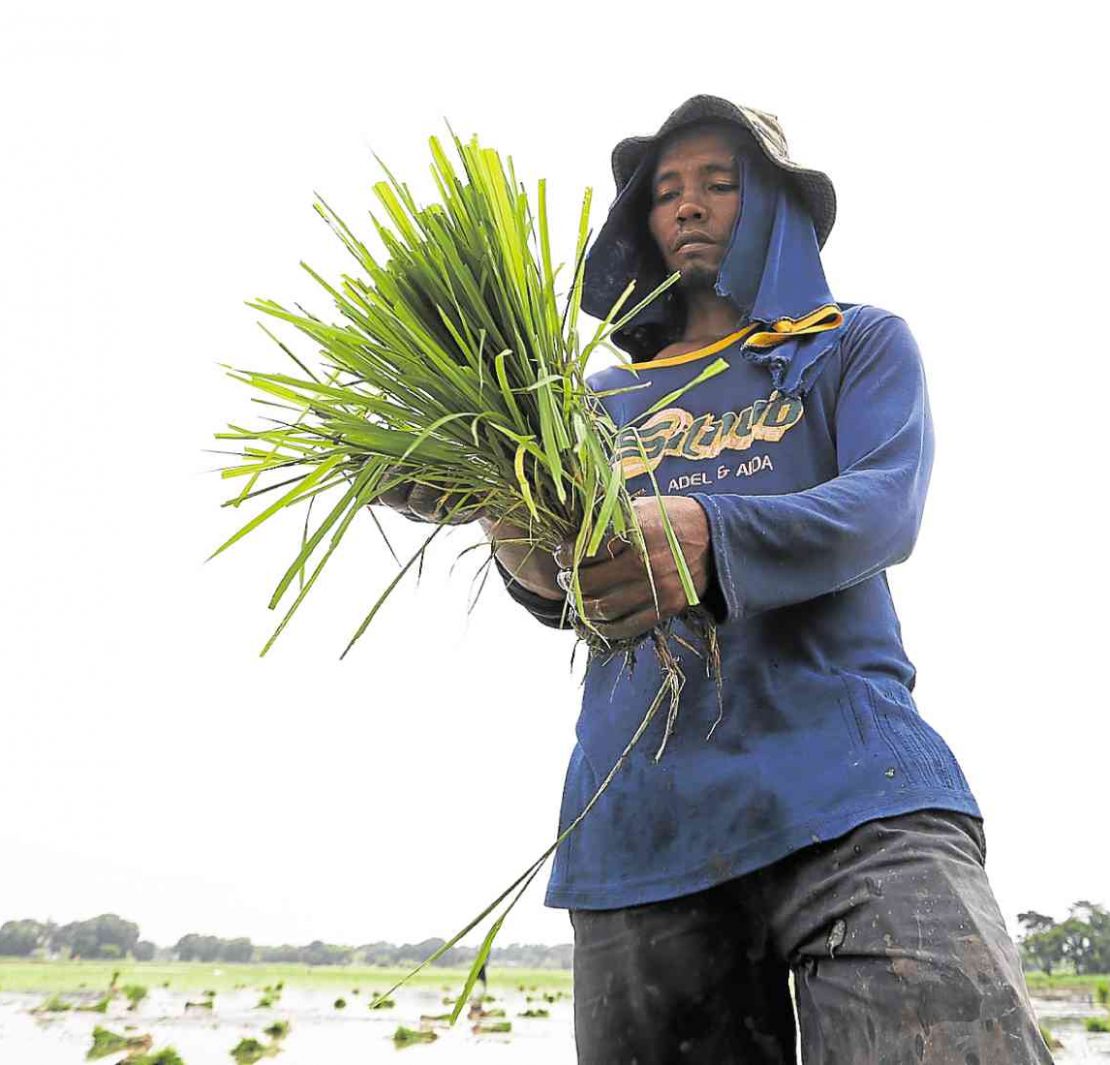On Feb. 14, President Rodrigo Duterte signed into law the Rice Tariffication Bill, which lifted restrictions on imported rice. This meant that instead of having a set limit of imported rice allowed in the country, foreign rice importers can pay the tariff—35 percent for ASEAN countries and 40 for non-ASEAN countries. “The whole rationale of Republic Act No. 11203 or the Rice Tariffication Law (RTL) is to provide affordable rice prices for consumers, coupled with the goal of raising the income of palay/rice farmers,” wrote commentator Omi Royandoyan for Inquirer.net.
It permits “traders to import a near-unlimited quantity of rice,” wrote F&B Report last year, adding that “local farmers are expected to be impacted the most as the removal of quantitative restrictions will pit them against foreign competitors.” It also quoted Kilusan ng Magbubukid ng Pilipinas, which called it a ‘death warrant’ to the local rice industry as it would open the floodgates to foreign industries that would overpower or ‘wipe out’ local rice farmers.”
That seems to be sadly prescient. “The results of the first year of Rice Tariffication Law implementation are totally the opposite of what the proponents of RTL were promising,” says Federation of Free Farmers (FFF) Raul Montemayor on Feb. 21. The FFF reported that during the RTL’s first year of implementation, “losses of rice producers exceeded the gains of rice consumers by P34 billion.”
“Average retail prices of regular milled rice declined by P2.61 per kilo in 2019 compared to 2018, while prices for well-milled rice went down by P1.99 per kilo. When multiplied by consumption volumes, this resulted in a gain for consumers of P34.16 billion in the form of lower prices of rice. On the other hand, palay farmgate prices dipped by P3.62 in 2019 and resulted in total losses to farmers of P68.18 billion, or double the gains for consumers,” says the report.
However, it noted that 2018 was an irregular year “during which prices spiked because NFA was not allowed to promptly import rice,” says Montemayor and that compared to 2016 and 2017, prices for regular and well-milled rice actually went up.
It also noted that “palay farmgate prices in turn declined by P1.04 per kilo, and both rice consumers and rice farmers ended up a combined loss of P38 billion.”
“When compared to 2016 and 2017 price levels, the data shows that we are just back to rice prices that prevailed when the quantitative restrictions on rice imports were still in place. So, where is the promised benefit from the RTL for consumers?” wrote Montemayor.
“The NFA stands to lose up to P7 for every kilo of palay that it buys from farmers at higher-than-market rates and sells as subsidized rice to consumers. As much as P5 billion out of its P7 billion procurement budget will be lost in the process. Despite this, they are now asking NFA to buy even more palay from farmers and expand their sales to cash transfer beneficiaries and the general public. This appears to contradict the philosophy of the RTL, under which the private sector was supposed to take over the rice market and the allegedly graft-prone and debt-ridden NFA would be relegated to buffer stocking for emergencies,” he added.
Montemayor concluded that with a call to the government, saying, “you cannot brush off what has happened so far as simple ‘birth pains’ and ask farmers to suffer a little bit more before the law takes effect. The farmers have already lost billions of pesos, and the consumers have not gained the benefits promised to them.”
According to Inquirer.net, the Philippines became the “the world’s biggest rice importer last year with a record 2.9 million [metric tons reached] after the government removed importation limits.”
Featured photo courtesy of Philippine Daily Inquirer
Get more stories like this by subscribing to our weekly newsletter here.
Read more:
Help your local farmers by purchasing your rice from this mobile app
Imported rice are more common now than ever—to the detriment of our rice farmers
How to empower the local farming industry, according to Auro Chocolate’s Mark Ocampo
Writer: ZOFIYA ACOSTA




